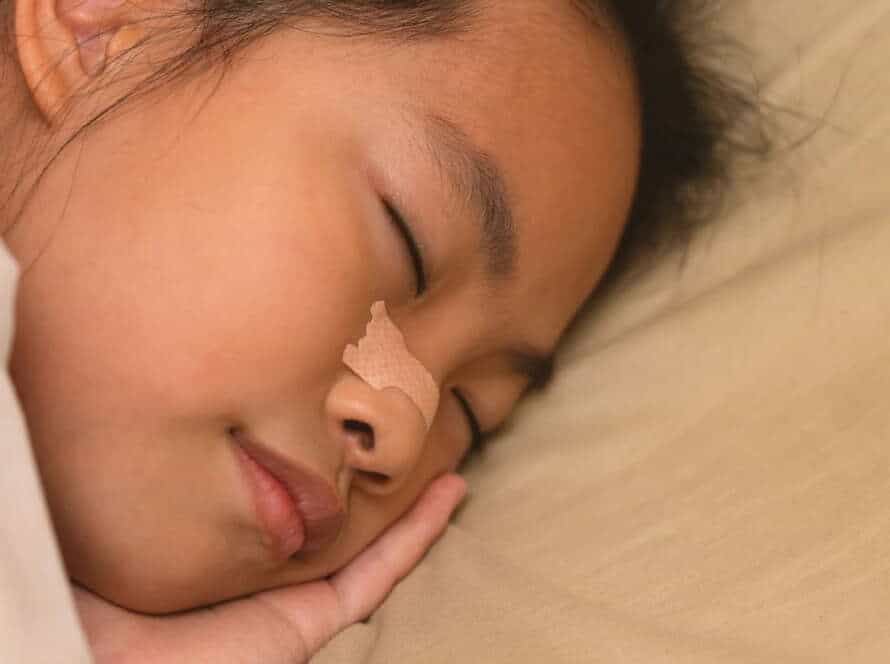We often consider food, exercise, and habits when discussing our health. But did you know that something in your neck, the thyroid, also plays a significant role?
This small gland can affect how you sleep. And guess what? Sleep problems like sleep apnea are linked to it. Thyroid and sleep apnea are two words that seem unrelated, but they have more in common than you think.
Let’s dive deep and learn more about it together!
Thyroid Function And Sleep Apnea
Role Of Thyroid Hormones
Thyroid hormones control many things in our body. They help our heartbeat, warm our bodies, and use energy. When these hormones are not right, our body doesn’t work well.
Thyroid hormones also affect our sleep. They help set our sleep cycle. A typical cycle helps us feel rested.
Thyroid Disorders And Apnea
Some people with thyroid problems can have sleep apnea. Sleep apnea is when you stop breathing during sleep. This is serious and needs attention.
Low thyroid hormone levels can cause muscles to relax too much. This can block the airway during sleep. When the airway is blocked, you stop breathing for a short time.
Prevalence In Thyroid Patients
Many people with thyroid problems suffer from sleep issues. Studies show a strong link between thyroid disorders and sleep apnea. People with low thyroid levels are more likely to have sleep apnea.
This doesn’t mean all thyroid patients have sleep apnea. But it’s common. Doctors often check thyroid levels when a person has sleep problems.
Interaction With Sleep Cycles
Thyroid hormones also control our sleep patterns. These patterns tell us when to sleep and wake up. When thyroid hormones are low, sleep patterns get mixed up.
This means a person will sleep at odd times. Or they will not get deep sleep. Deep sleep is important for rest. Without it, a person will feel tired even after a long sleep.
Mechanisms And Impact
How Thyroid Affects Breathing
The thyroid gland makes hormones. These hormones control many body functions. One of these functions is breathing. Proper thyroid levels are key to breathing right.
When there’s too little thyroid hormone, our breathing muscles get weak. Weak muscles can’t keep the airway open. This leads to breathing problems, especially during sleep.
Sleep Apnea Severity
Sleep apnea is a condition where breathing stops during sleep. It’s dangerous and can make people very tired. Thyroid problems can make sleep apnea worse.
People with low thyroid levels often have more breathing stops. The more stops, the worse the sleep apnea. It’s important for doctors to know about both conditions to treat them right.
Metabolic Implications
Metabolism is how our body uses food for energy. Thyroid hormones control this process. Sleep apnea and thyroid problems can change metabolism.
Changes in metabolism can lead to weight gain. It also affects sugar and fat in the blood. This is bad for heart health. Over time, these changes can cause more health problems.
Neurological Consequences
Our brain needs oxygen to work right. Sleep apnea can reduce oxygen because of breathing stops. Low thyroid levels can add to this problem.
Lack of oxygen affects brain function. It can cause memory problems, mood changes, and trouble thinking. People with sleep apnea and thyroid problems need to watch for these signs.
Symptoms And Diagnosis
Recognizing Sleep Apnea Signs
- Sleep apnea can make you snore loudly.
- Waking up a lot during the night is common.
- Feeling tired during the day, even after sleeping, is a big sign.
- Morning headaches and a dry throat when waking up are also clues.
- Seeing a doctor when noticing these signs is crucial.
Thyroid-Related Symptoms
- Feeling very tired or weak can hint at thyroid problems.
- Dry skin and unexplained weight gain are signs.
- Often, feeling cold and having muscle aches are other clues.
- These symptoms mean your thyroid is not working well.
Diagnostic Methods
- Doctors use tests to diagnose these issues.
- A sleep study is common for diagnosing sleep apnea.
- Blood tests can help find thyroid problems.
- It’s important to get the right tests for proper treatment.
Coordinating Healthcare Providers
- Your doctors work together for your health.
- They share information and plan treatments.
- This teamwork ensures you get the best care.
- Always keep all your doctors informed about your health.
Treatment And Management
Thyroid Disorder Treatments
Thyroid problems happen when your thyroid gland doesn’t work right. The thyroid gland is in your neck. It helps control how your body uses energy.
When your thyroid is too active, you’ll need medicine to slow it down. This condition is called hyperthyroidism.
But when it’s inactive enough, you’ll need medicine to speed it up. This is called hypothyroidism.
Sleep Apnea Therapies
Doctors can suggest ways to keep air moving smoothly for sleep apnea, such as oral medical devices or PAP machines, so the patient can breathe better at night.
Sometimes, doctors suggest surgery or a dental device. These can help keep airways open.
Combined Approaches
- Some people have both thyroid problems and sleep apnea. Treating one can help the other.
- For example, treating the thyroid can sometimes improve sleep apnea.
- It’s essential to see a doctor who knows about both issues.
Lifestyle Changes For Improvement
- Living a healthy life can help both conditions.
- Eating balanced meals will support your thyroid. Avoiding caffeine before bed can help sleep.
- Exercise is also key. It boosts energy and improves sleep.
FAQs
1. Is Sleep Apnea Common With Hypothyroidism?
Yes, hypothyroidism can increase the risk of sleep apnea. People with an underactive thyroid often experience sleep disturbances, including sleep apnea.
2. Can Thyroid Issues Cause Sleep Problems?
Absolutely, thyroid problems, both overactive and underactive, can disrupt sleep patterns. An imbalanced thyroid can lead to insomnia or excessive sleepiness.
Conclusion
The connection between the thyroid and sleep apnea is important. When our thyroid isn’t working right, it can mess up our sleep.
Taking care of both can lead to better sleep and a healthier life. Remember, understanding our body helps us make smart choices.
Stay curious, and always talk to a doctor if you have concerns about your sleep or thyroid. It’s all about being the best you!

